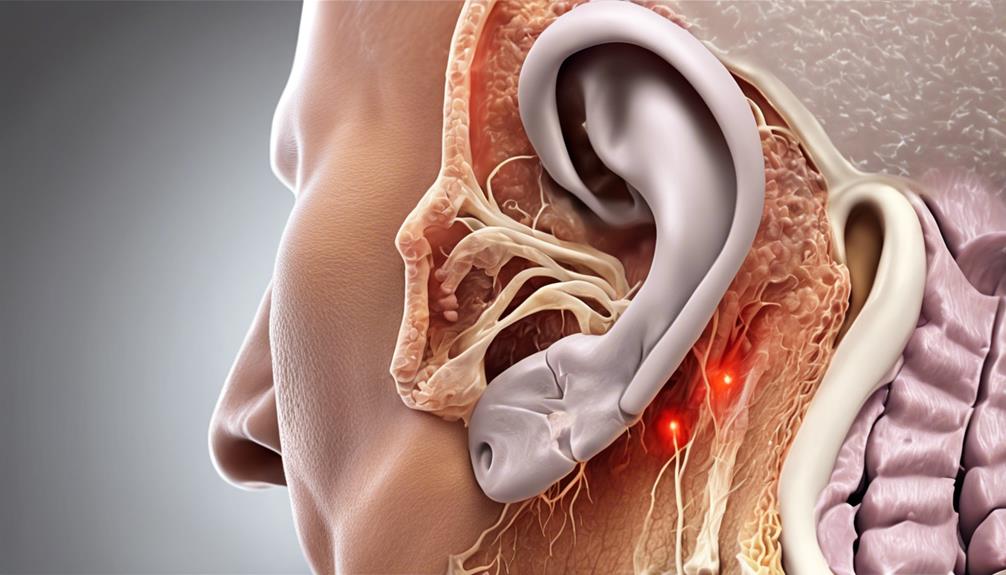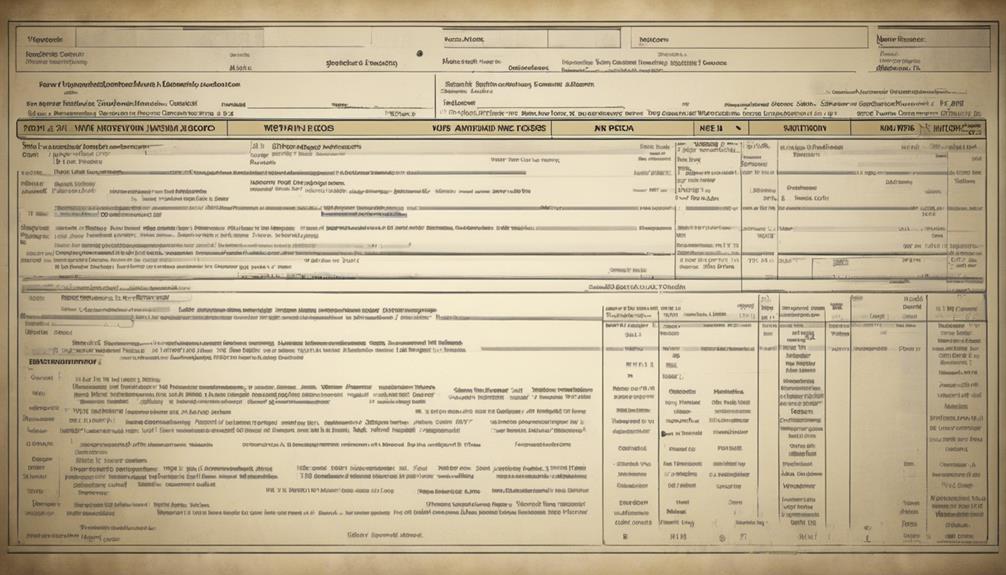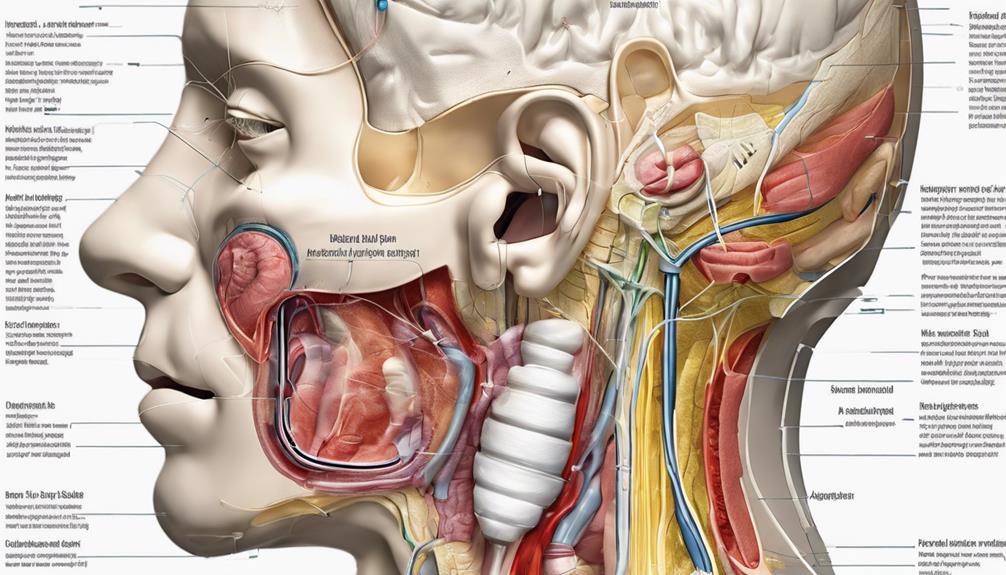Do you ever wonder how chemotherapy can lead to hearing loss?
The process may seem complex, but understanding the underlying mechanisms can shed light on this common side effect.
By exploring the connection between certain chemotherapy drugs and damage to inner ear cells, we can begin to grasp the nuances of how chemo impacts our hearing.
Stay with us to uncover the intricacies of this relationship and learn about ways to mitigate potential risks and manage any changes that may arise.
Key Takeaways
- Platinum-based chemo drugs harm inner ear cells, affecting high-pitched sound perception.
- Damage disrupts auditory system balance and functionality.
- Monitoring hearing changes during chemo treatment is crucial.
- Understanding chemo-induced hearing loss aids in personalized management.
Mechanisms of Chemo-Induced Hearing Loss
In understanding chemo-induced hearing loss, we delve into the intricate mechanisms that reveal how chemotherapy drugs harm the inner ear cells responsible for our sense of hearing. Platinum-based drugs, such as cisplatin and carboplatin, are often culprits in causing ototoxicity and subsequent hearing loss. These medications can inflict irreversible damage on the delicate hair cells within the inner ear, particularly impacting our ability to perceive high-pitched sounds.
The mechanism of chemo-induced hearing loss centers around the toxic effects chemotherapy agents exert on the auditory system, disrupting its delicate balance and functionality. By comprehending the specific mechanisms through which chemotherapy drugs harm inner ear cells, we equip ourselves with the knowledge necessary for monitoring and managing potential hearing issues effectively.
It's imperative to stay vigilant in recognizing the signs of chemo-induced hearing loss early on to implement timely interventions and preserve auditory function as much as possible.
Chemotherapy Drugs and Hearing Damage

Understanding the detrimental impact of chemotherapy drugs on hearing, especially platinum-based medications like cisplatin and carboplatin, sheds light on the significant risk these treatments pose to the delicate inner ear cells responsible for our auditory function.
Chemotherapy-induced hearing loss, often affecting high-pitched frequencies, is a common side effect of these potent drugs. Alongside platinum-based chemotherapy, some immune-targeted therapies used in melanoma treatment have also been associated with hearing damage.
Cisplatin, frequently employed in treating gynecological and head and neck cancers, is particularly notorious for its potential to cause irreversible damage to inner ear cells, leading to permanent hearing loss.
For individuals undergoing these treatments, the threat of hearing impairment can be distressing, highlighting the importance of closely monitoring hearing health during and after chemotherapy.
Being aware of the risks associated with these medications is crucial in mitigating potential long-term consequences for one's auditory well-being.
Minimizing Risk During Chemo Treatment
To minimize the risk of hearing loss during chemotherapy treatment, closely monitoring any changes in hearing and promptly consulting with your healthcare team is crucial. Chemotherapy drugs, especially those with ototoxic properties like platinum-based medications, can directly harm inner ear cells, potentially leading to permanent hearing loss. Working in collaboration with your healthcare providers to monitor your hearing throughout treatment is essential. By staying vigilant and addressing any concerns promptly, adjustments to chemotherapy doses can be made, or alternative medications can be explored to reduce the impact on your hearing. Additionally, protecting your ears from loud noises and scheduling regular audiograms can help in minimizing the risk of hearing damage.
| Strategies for Minimizing Risk During Chemo Treatment | |
|---|---|
| 1. Monitor hearing changes carefully | 2. Collaborate with healthcare team |
| 3. Adjust chemotherapy doses when necessary | 4. Protect ears from loud noises |
| 5. Schedule regular audiograms |
Coping Strategies for Hearing Loss

Utilizing coping strategies such as hearing aids, lip-reading, and joining support groups can greatly assist individuals in adapting to and managing hearing loss resulting from chemotherapy treatment. Here are four key coping strategies to help navigate through the challenges of hearing loss post-chemotherapy:
- Hearing Aids: These devices can significantly improve communication and enhance quality of life for individuals experiencing chemotherapy-induced hearing loss. They amplify sounds, making it easier to hear and engage in conversations effectively.
- Lip-reading and Visual Cues: Incorporating lip-reading and paying attention to visual cues can aid in understanding conversations and interactions, especially in noisy environments or when facing communication difficulties.
- Support Groups: Joining support groups offers emotional support and practical assistance for coping with the emotional impact of hearing loss after chemotherapy. Sharing experiences and solutions with others in similar situations can be comforting and empowering.
- Counseling Services: Seeking counseling services can help individuals manage the emotional effects and adjustment to living with hearing loss post-chemotherapy. Professional guidance can assist in developing coping strategies and enhancing psychological well-being during this transition.
Informed Decisions for Hearing Care
Regularly consulting healthcare providers about potential risks to hearing and effective management strategies is crucial for making informed decisions during chemotherapy. Understanding how specific drugs used in chemotherapy can impact hearing is essential in guiding treatment choices.
By staying informed about the potential side effects of chemotherapy on hearing, individuals can work with their healthcare team to monitor their hearing health closely. This may involve regular communication with audiologists for baseline hearing tests and ongoing monitoring throughout treatment.
Being aware of the risk factors associated with chemotherapy-induced hearing loss and recognizing early symptoms can help individuals take proactive steps to address any changes in their hearing. Making informed decisions about hearing care during chemotherapy means considering available treatment options and personalized management strategies to mitigate the impact of treatment on hearing health.
Frequently Asked Questions
What Is the 7 Day Rule in Chemotherapy?
The 7-day rule in chemotherapy is a crucial guideline that sets limits on how frequently certain chemotherapy drugs can be administered. This rule is designed to prevent cumulative toxicity, allowing the body time to recover from chemotherapy's effects.
Chemotherapy drugs with short half-lives are often given more frequently in adherence to this rule. Adjustments to treatment plans may be necessary to optimize outcomes while minimizing side effects.
Adhering to the 7-day rule is vital for balancing treatment effectiveness and patient well-being.
What I Wish I Knew Before Chemo?
Before undergoing chemotherapy, it is essential to prepare both mentally and physically for the journey ahead. Understanding the potential side effects, such as fatigue and nausea, can help individuals cope better with the treatment process. Knowing about the support systems and resources available can make a significant difference in one's overall experience. Being informed about self-care practices, such as staying hydrated and getting enough rest, can help individuals navigate the challenges of treatment more effectively.
Having this knowledge beforehand can lead to a more manageable and positive chemotherapy experience.
How Does Chemotherapy Cause Ototoxicity?
Chemotherapy causes ototoxicity by damaging inner ear cells responsible for hearing, particularly affecting high-frequency sounds. Drugs like cisplatin and carboplatin are known for their ototoxic effects, leading to permanent hearing damage. Monitoring for ototoxicity during treatment is crucial to managing potential hearing loss.
Early recognition is key to addressing any arising hearing issues. Understanding the mechanisms behind chemotherapy-induced hearing loss helps in providing better care for patients undergoing cancer treatment.
What They Don T Tell You About Chemo?
When it comes to chemo, there are some crucial things that mightn't always be shared upfront. From potential side effects like hearing loss to the emotional toll it can take, there are aspects that often go unmentioned.
It's important to be aware of all the possible impacts, both physically and emotionally, so we can better prepare ourselves and seek the necessary support during treatment.
Conclusion
As we navigate the complexities of chemotherapy and its potential side effects, it's important to remember that knowledge is power.
By understanding how chemo can cause hearing loss and taking proactive steps to minimize risks and manage any changes in our hearing, we can empower ourselves to make informed decisions about our healthcare journey.
Let's stay informed, stay vigilant, and prioritize our hearing health every step of the way.










